Submitted by Sarbjit Bahga
"Revisiting Patrick Geddes" – A Three-Day International Conference Held At IPS Academy, Indore, India
India Architecture News - Oct 28, 2019 - 13:42 15365 views
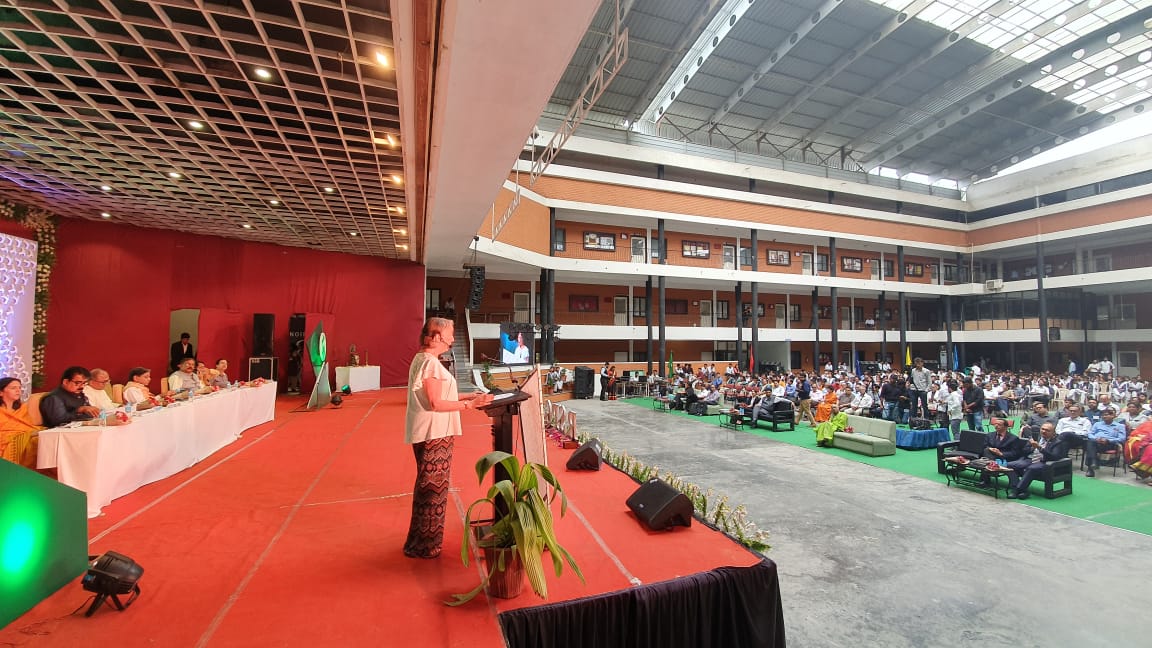
‘Revisiting Patrick Geddes’ – A Three-Day International Conference was held at School of Architecture, IPS Academy, Indore, India on 26-28 September 2019. The conference was held in commemoration of hundred years of Sir Patrick Geddes’ report to ‘The Durbar of Indore’ and was devoted to the ideas of sustainability and the multidisciplinary learnings that can be derived from the works and life of Sir Patrick Geddes (1854-1932). Sir Patrick Geddes was a Scottish biologist, sociologist, geographer, philanthropist and a pioneering town planner. He was known for his innovative thinking in the field of urban planning and sociology.
The aim of the conference ‘Revisiting Patrick Geddes’ was to create a roadmap for the development of cities and their environment in the future and to contribute to better city ecology. The event was co-organised by the IPS Academy, Indore and Vigyan Bharti with the financial assistance of the Department of Science and Technology, Government of India.
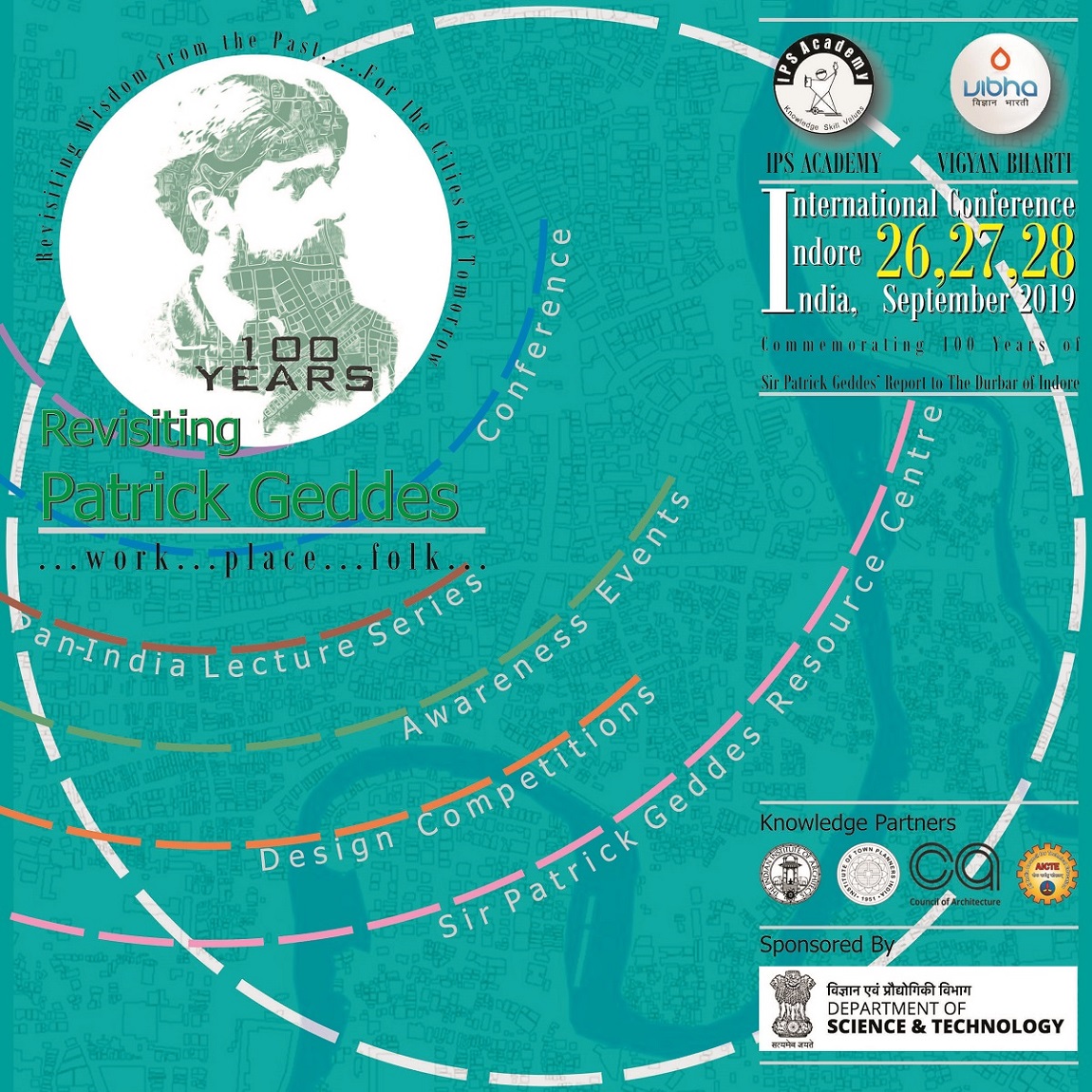
Sir Patrick Geddes and His Indian Connection
About a hundred years ago a multifaceted Scottish personality synthesized his thoughts related to humans, their cities and how harmony could be achieved in cities and nature. Sir Patrick Geddes, who was a biologist, sociologist, geographer, philanthropist and pioneering town planner, believed in design and planning for the people in their place. He laid emphasis on the fundamental unity and interdependence of culture and nature and stressed on trans-disciplinary education and locally adapted direct action as a means of cultural transformation.
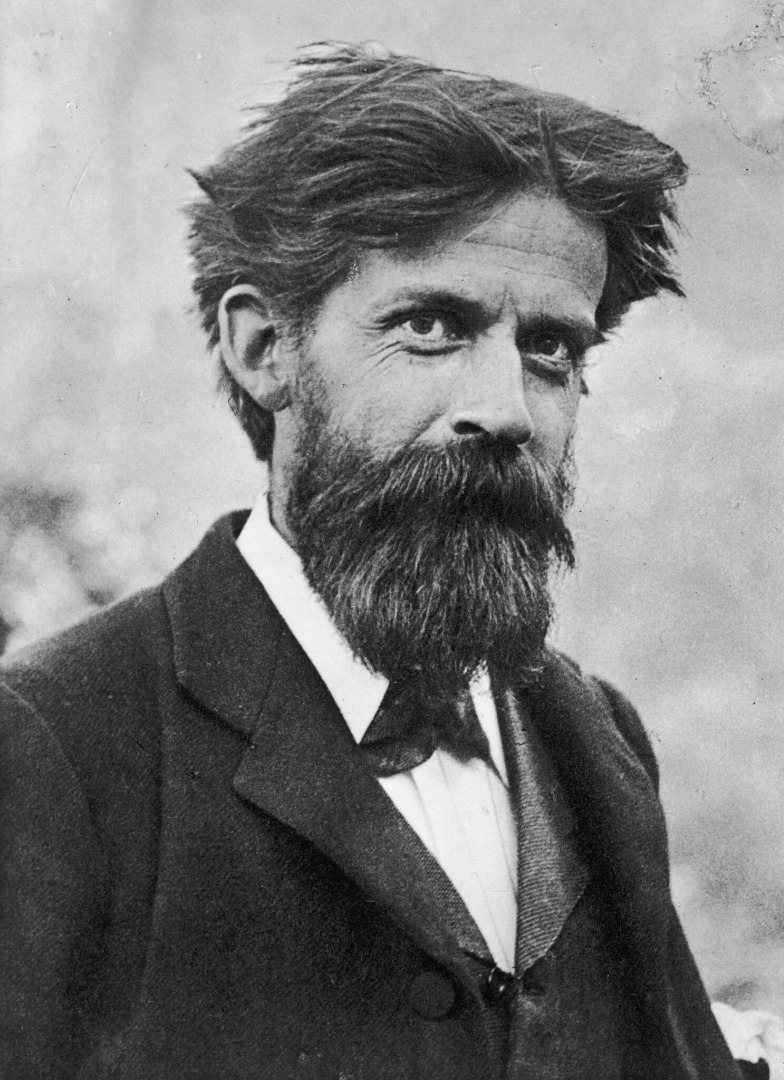 Sir Patrick Geddes. Photo: patrickgeddescentre.org.uk
Sir Patrick Geddes. Photo: patrickgeddescentre.org.uk
Sir Patrick Geddes believed that life should be understood as a dynamic ecological, social and cognitive process in which humanity participates, raises awareness of the fundamental interconnection of nature and culture. He realized that such a participatory worldview informed by the detailed knowledge about the ecological, social, geological, cultural and hydrological conditions of the local region would be instrumental in facilitating the emergence of sustainable human societies uniquely adapted to their particular region.
Although Sir Patrick Geddes did much to improve the living conditions of his local environment, he also became a figure of international importance connecting with various important people at that time and visiting various countries, including India, for proposing highly refined methodologies for the planning of more humane and sustainable cities. He travelled widely and corresponded with key Indian thinkers and writers of that time namely Mahatma Gandhi and Rabindranath Tagore but his special connect with Swami Vivekananda and Margaret E Nobles (Sister Nivedita), which eventually led to his visit to India between 1917 and 1924.
Sir Patrick Geddes made an extensive tour of Indian Temple cities, whose planning fascinated him and he was able to decipher the systems that went into the creation of these cities. Later, he used the same insight he got from the city of Kanchipuram, the ancient capital of the Pallava Empire, into his designing of Tel Aviv.
Between 1915 and 1919, he wrote a ‘series of exhaustive town planning reports’ on at least 18 Indian cities including Indore, Vadodara, Nagpur, Gwalior, Jabalpur, Lukhnow, Kapurthala etc., in which his concern was to create ‘working systems in India’ by making interventions that were both considerate of local context and tradition and cognizant of the need for development post-industrialization.
The persona of Sir Patrick Geddes is also made special for the city of Indore because it is here he turned the festival of Lights – Deepawali – into a fight against filth and pollution. By soliciting citizens’ participation in cleanliness drive through competition, he fixated his principles of public participation for a cleaner and healthier city environment into the people’s minds by burning along with Ravana a huge effigy of the Rat (symbolizing Plague). He also took this as an opportunity to honour the then marginalised and despised sanitary workers.
Revisiting Patrick Geddes
The conference comprised of three main events during the three days: 26th, 27th and 28th September 2019. The technical paper presentation sessions, Annual IPSA Trophy- "Spirit of Cities", an Exposition displaying sustainable materials and practices and an Exhibition by the students of architecture.
The three-day event began with the inaugural session at IPS Academy with more than 1000 people gathered for the commencement of the Conference. The presence of Marion Geddes, the granddaughter of Sir Patrick Geddes as the guest of honour was pleasant. She shared old pictures and stories of Sir Geddes and his life. The Member of Parliament from the city of Indore, Shri Shankar Lalwani was the Chief Guest.
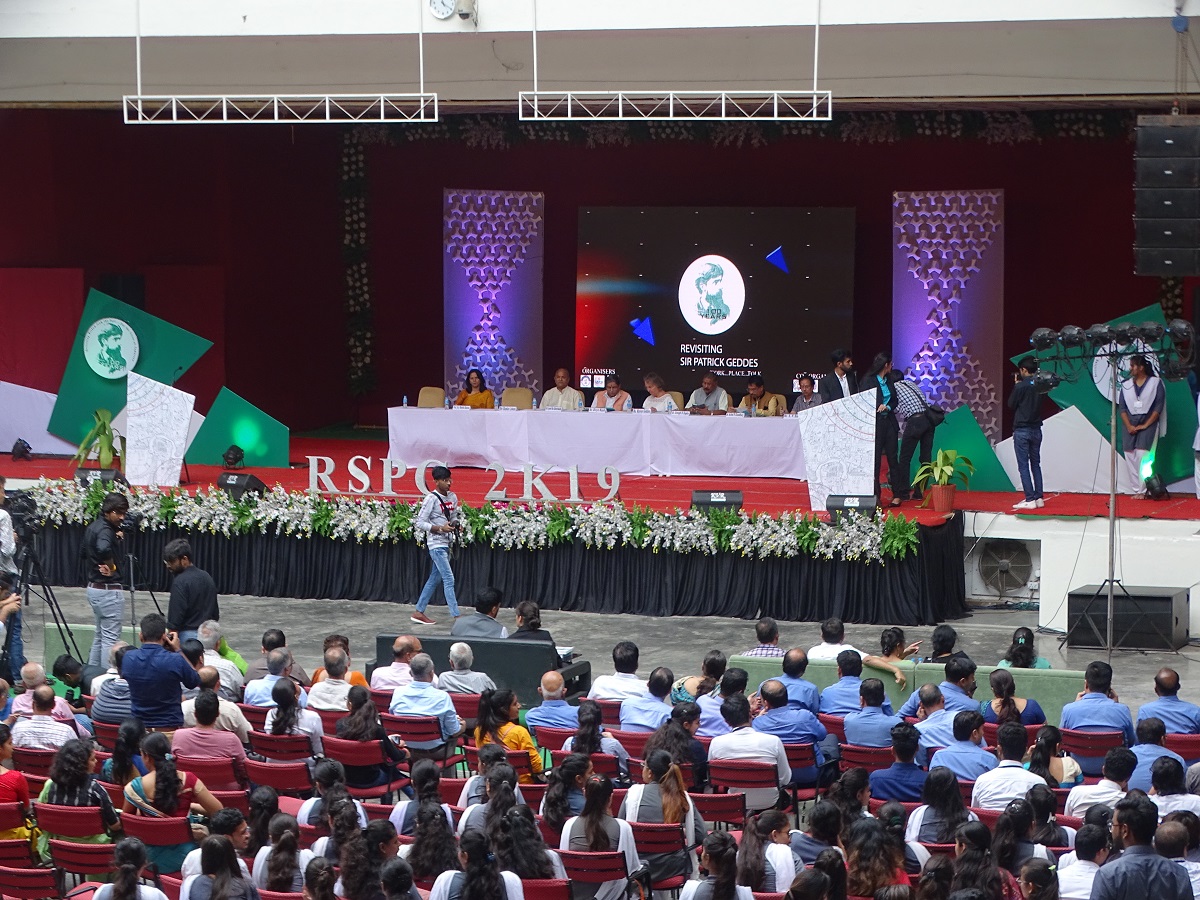
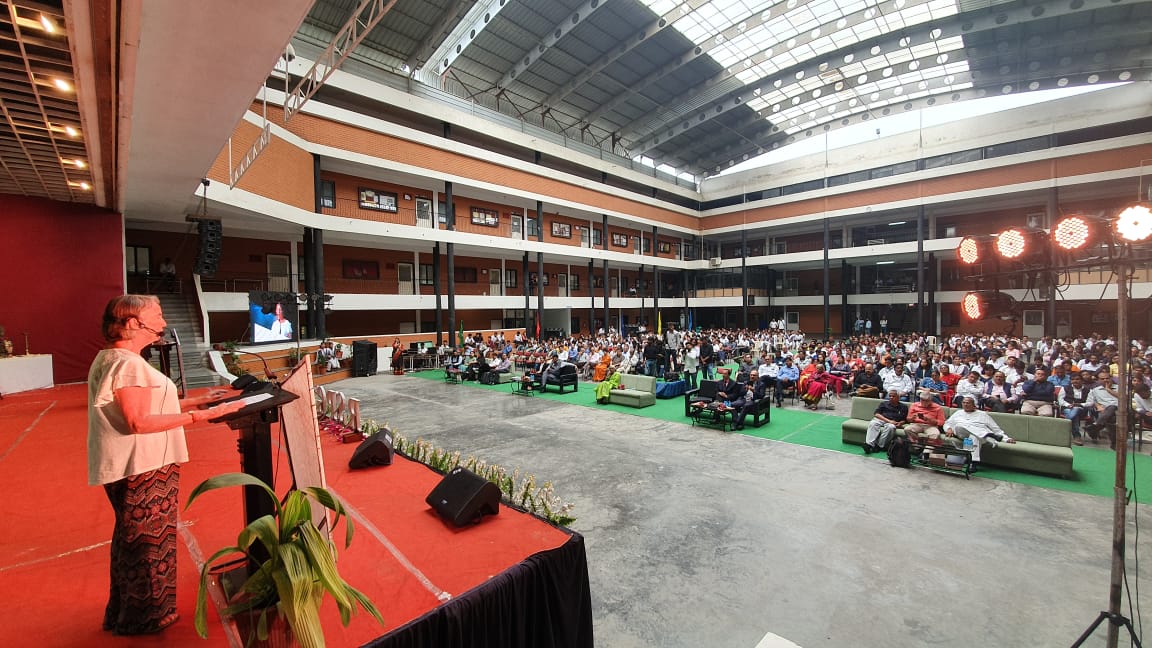
Being a crucial event for the architectural and planning fraternity, the dais was graced by the presence of imminent architects. The President of the Indian Institute of Architects, Divya Kush shared his views about sustainability and how it is the need of the hour. Amogh Gupta, the Chairman of School of Planning and Architecture, Delhi, spoke on the importance of the city and the people.
The technical sessions began with paper presentations by professionals, academicians and students from esteemed institutions, all working for a sustainable future through research and practice. The Keynote Speakers: Dr Tej Kumar Karki from Nepal, Dr Mustafa VAR from Istanbul Turkey, Dr Zebun Nasreen Ahmed from Bangladesh, Surinder Bahga from Chandigarh and Dr Elif Berna VAR from Kyoto, Japan presented their respective keynote lectures in the three days of the conference.

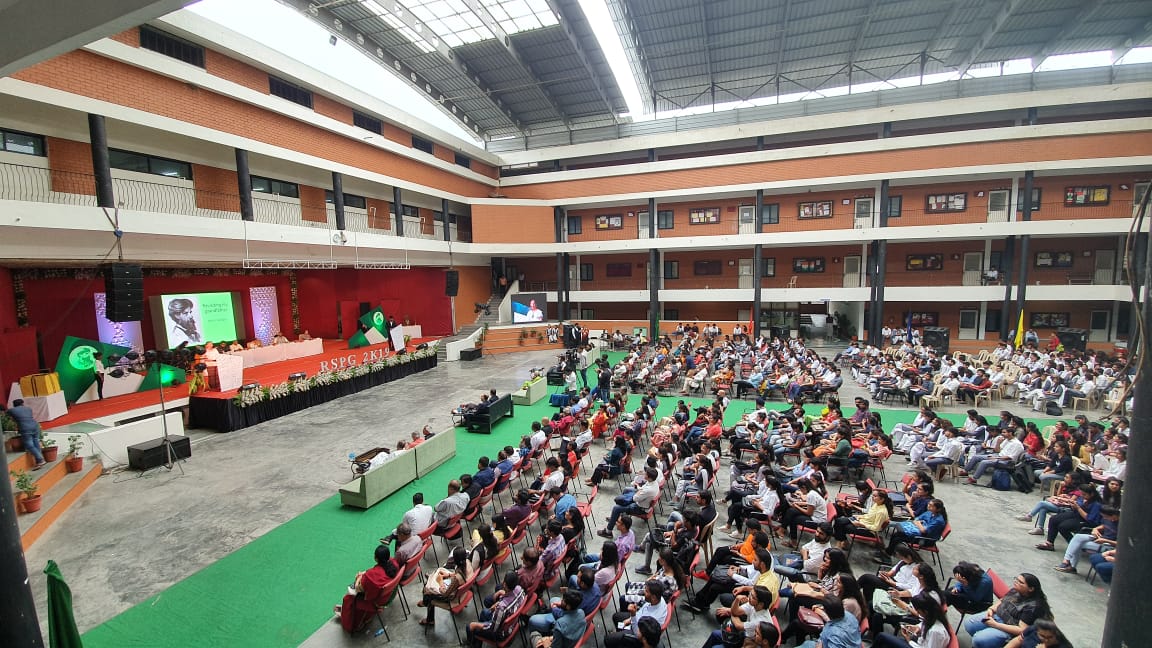
The first session, "Sir Patrick Geddes and his contributions" commenced with the keynote session by Dr Tej Kumar Karki from LPU, Jalandhar. An Urban Planner from Nepal, Dr Karki is a researcher whose work ranges from Politics in planning to disaster mitigation in cities. His presentation on "How Human-Centric, Thoughtful and Practical Were Patrick Geddes’ Planning Approaches Applied in Indore" displayed the why and how the arrival and work of Sir Patrick Geddes was important in the city of Indore and how it proposed to shift the focus of the planners from city to people.
The topic for IPSA Design Trophy 2019 was “Spirit of the City”. Sir Patrick Geddes in his concept of Work-Folk-Place, talked about the relationship between people and place and their impact on each other. In today’s scenario, the Indian cities have become a complex system of all the three, work, folk and place. Apart from this complex system, each city expresses its ethos and values which it manages to sustain through the years of development. Alternatively, there may be areas which are new but have become a significant part of the city. These significant areas are referred to as the "Spirit of the City". The competition intended to identify the ‘Spirit’ of any Indian city and to highlight the underlying reason for the sustenance of these identified areas, and also to identify the threats and to suggest possible interventions.
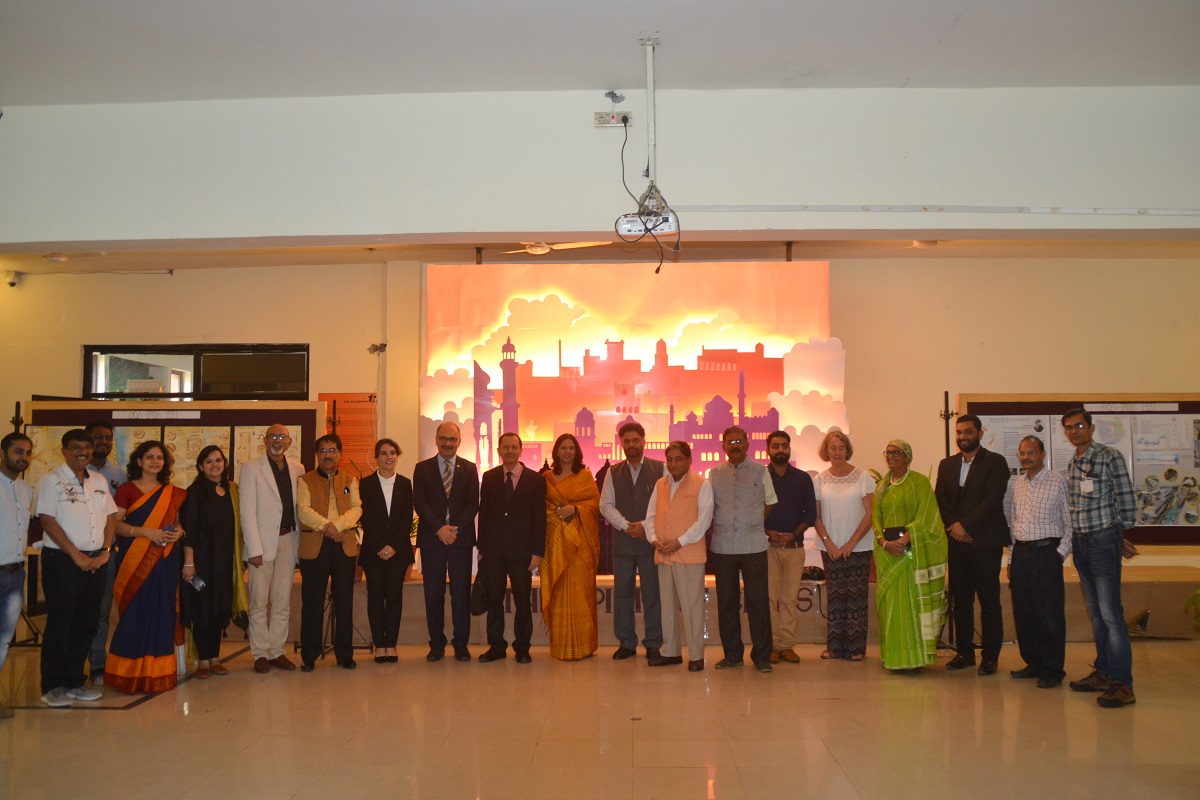
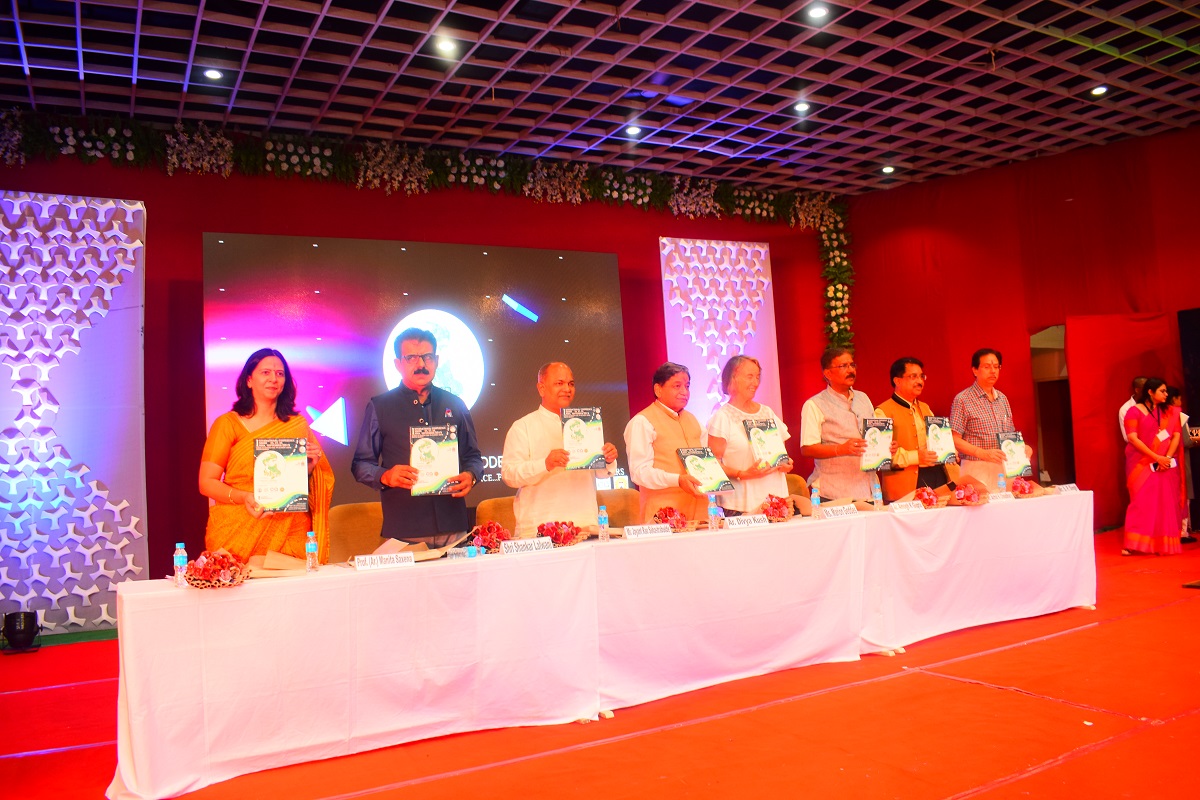
Day two of the conference began with the second session "Vision of Cities" The keynote speaker for the first session of the day, Dr Zebun Nasreen Ahmed, is a professor at BUET, Bangladesh and is working in Dhaka on several projects of urban design, mass housing, architecture and conservation in the city. Her topic: "Reflections on Architecture and Design in the 21st Century, In Light of Patrick Geddes’ Ideals" explored the ethics of Sir Patrick Geddes and how it affects the design and architecture in the present century if applied in the present times.
The third session, "Development at Various Scales" began and was commenced by the stirring presentation, "Inspired and Inspiring, Sir Patrick Geddes", the topic of the keynote session by Surinder Bahga elucidated the theories and works of Sir Patrick Geddes and the importance of the same at every level of development. Surinder Bahga runs the Saakaar Foundation in Chandigarh and is involved in several projects. His firm conducts research and studies of built-environment and improving the lives of people in rural and semi-urban areas through the medium of architecture.
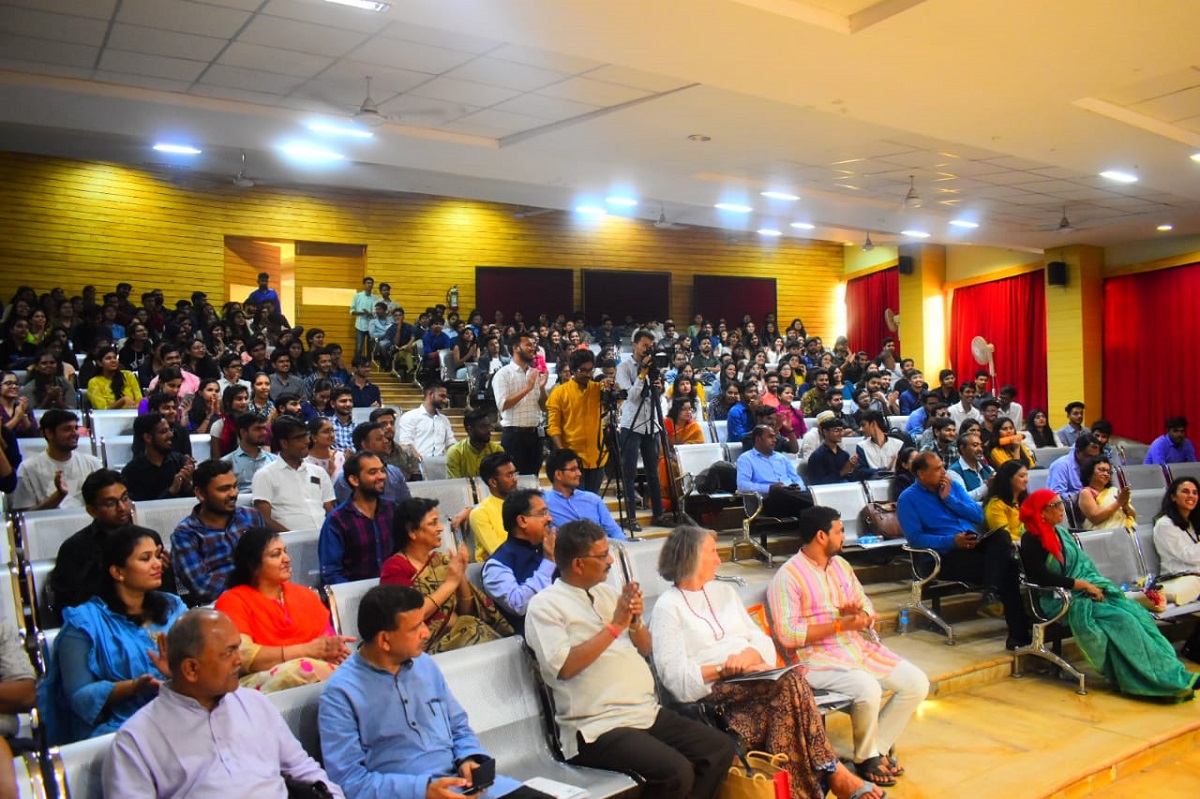
The last session of Day two of the international conference, "Urban Habitats/ Urban Ecosystems" instigated by Dr Elif Berna VAR, a Conservation Architect and a research fellow from Kyoto, Tokyo, and the keynote speaker, reflected on the Geddesian ideals on conservation through her presentation: Think Global, Act Local: In The Context of Architectural Conservatıon. Dr VAR is a Landscape Architect, an Urban Designer with the primary research areas being history, heritage conservation, landscape and vernacular housing.
The third day of the conference, begun with the final session, "Sustainability-Development". The Keynote address was presented by Dr Mustafa VAR from Turkey titled "Urban Green Areas in the context of Patrick Geddes' Ecological and Design Concepts: the case of Istanbul". The paper started by noting the rapid growth of urbanisation on a global level. The favourable impact of green areas on the urban environment was also amply proved.
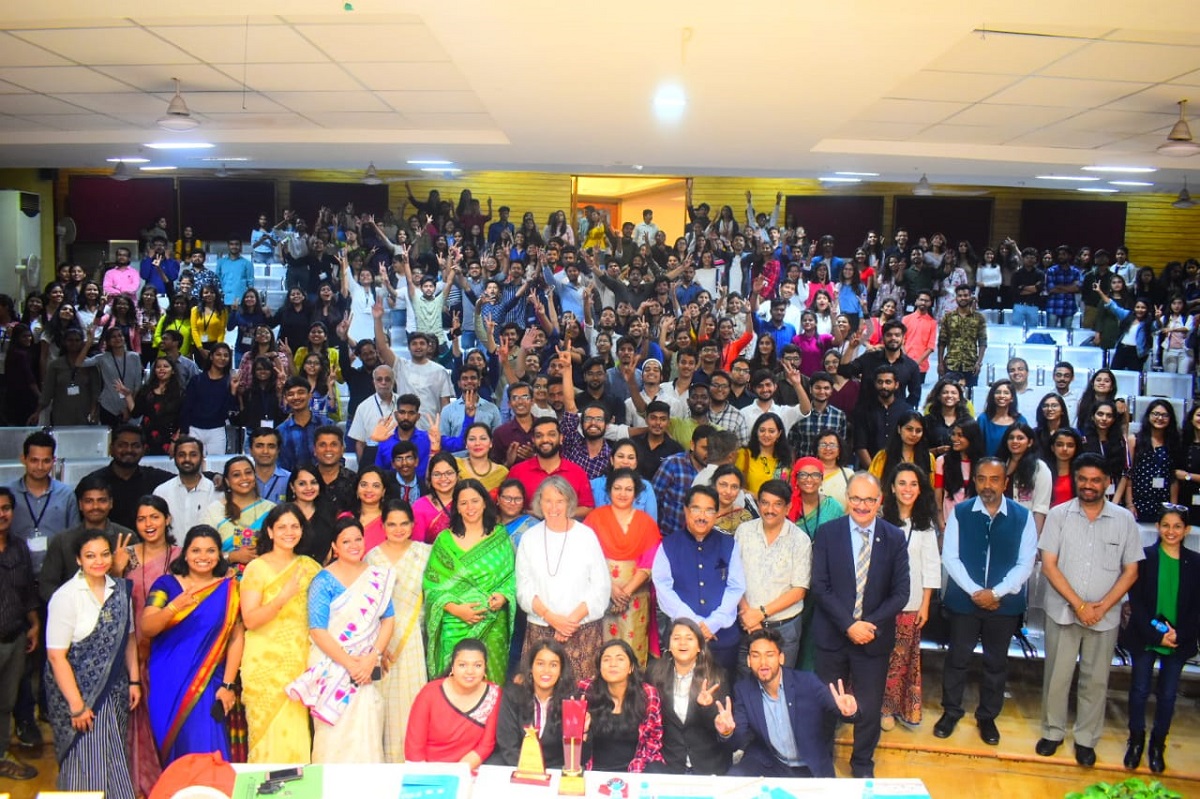
The session ended with a dynamism which transformed to excitement as it was time for the presentations by the top 5 teams of the IPSA Design Trophy. The panel of Jury consisted of Vijay Garg, Amogh Gupta, Dr Zebun Nasreen Ahmed, Dr Elif Berna Var and Dr K. K. Dhote. After an exhilarating presentation by all the shortlisted colleges, it was finally time to announce winners of the IPSA Design Trophy 2019. The students, faculties and the guests eagerly awaited the announcement of the results which was declared by Zebun Nasreen Ahmed. The winning entry from BNCA, Pune, bagged a cash prize of INR 75,000. The 1st runner up NDMVP College of Architecture, Nasik, bagged a cash prize of INR 50,000. The second runner up SOA, IPS Academy, Indore (host college) bagged a cash prize of INR 25,000.
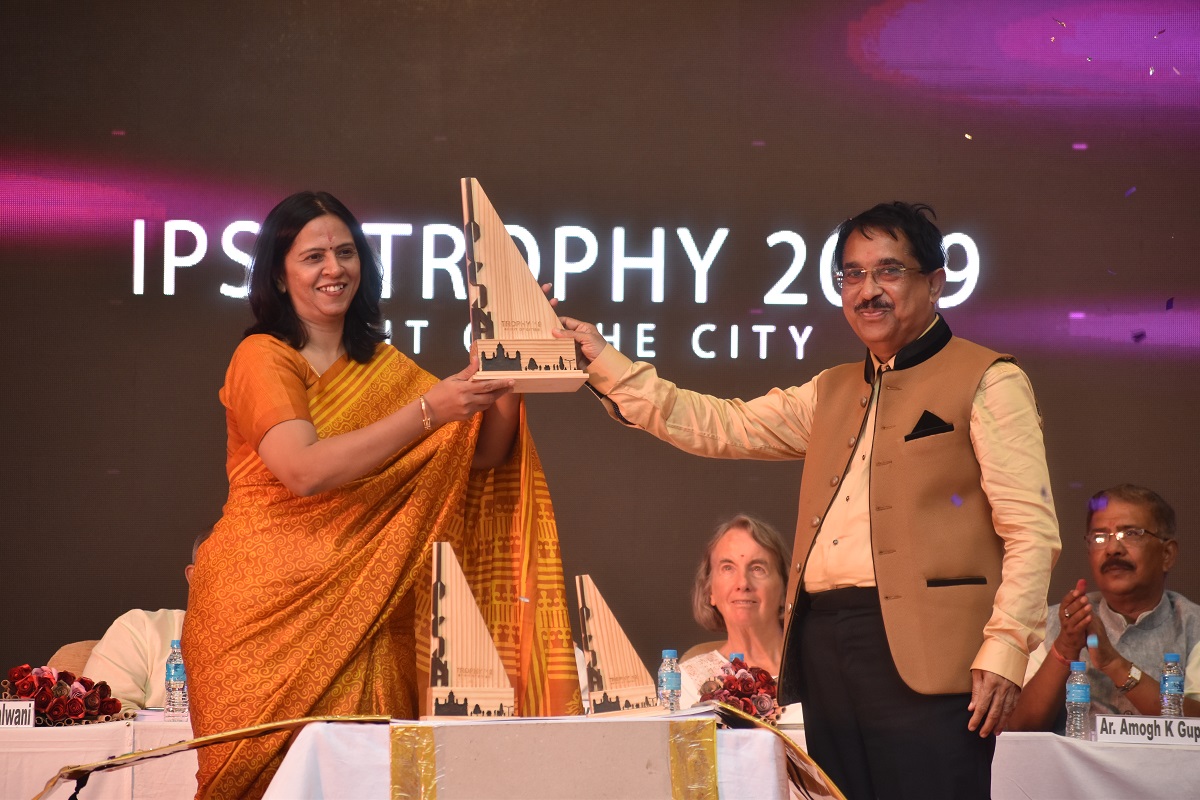
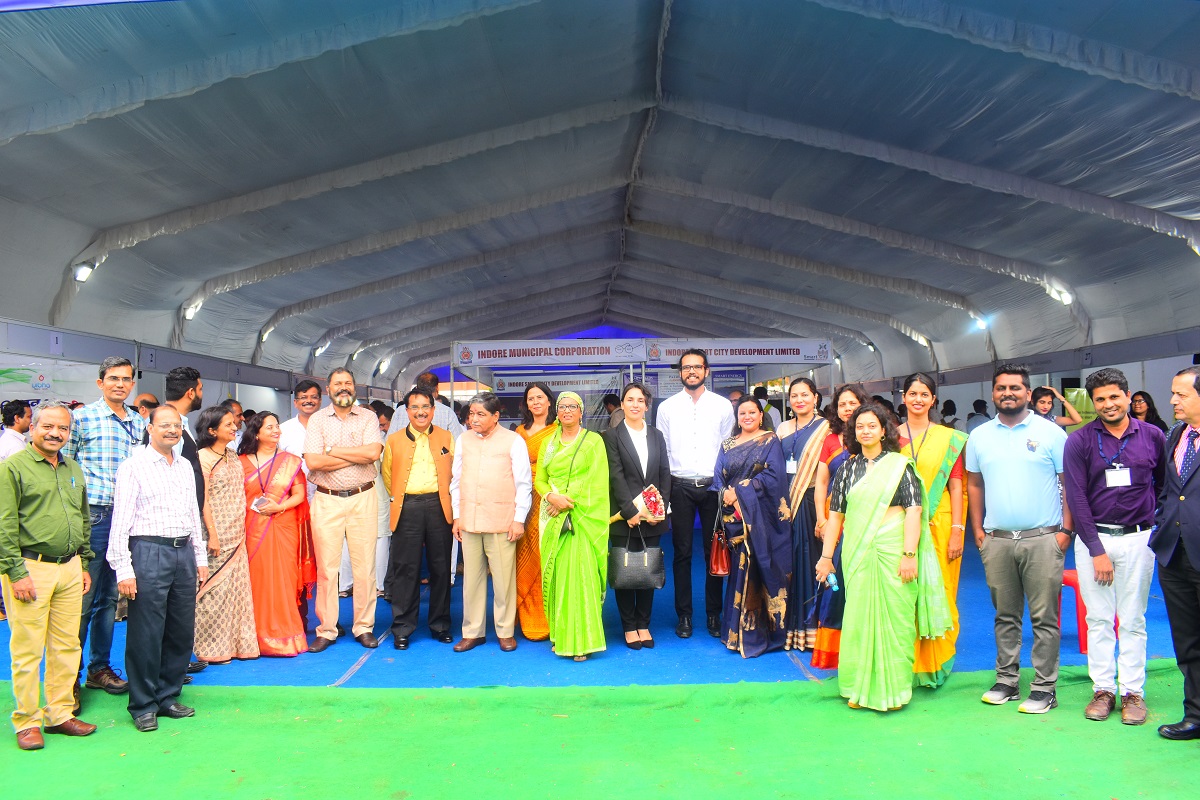
The Valedictory session initiated with felicitation of the Keynote Speakers, the moderators for the technical sessions namely- C.D. Saxena, K.K. Dhote, Surinder Bahga, Megha Shruti, Abraham Pathrose and Raj Vaswani. The President of the Institute, Achal Choudhary addressed the crowd with best wishes to the participants of the conference and congratulated the winners of the Design Trophy. Jayant Sahasrabudhe and Amogh Gupta spoke of how informative and wholesome the whole experience had been. The Principal of the Institute, Manita Saxena delivered an overview of the conference. She expressed her heartfelt expression of gratitude to her team who worked day in and out to organize the event and made it the success that it was. The team members all gathered on stage to share the final moments of the occasion and share the mutual elation. The event concluded with a promise to achieve new goals in the forthcoming years with organizing many more such events.
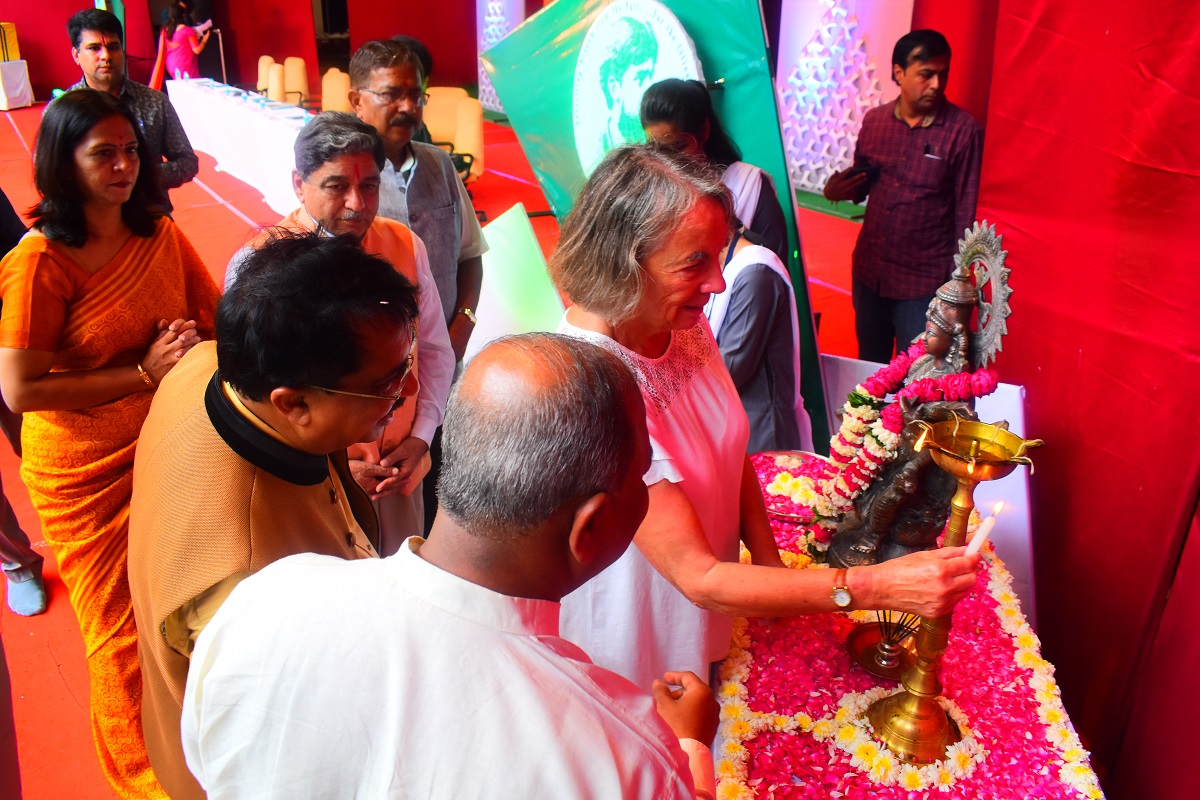
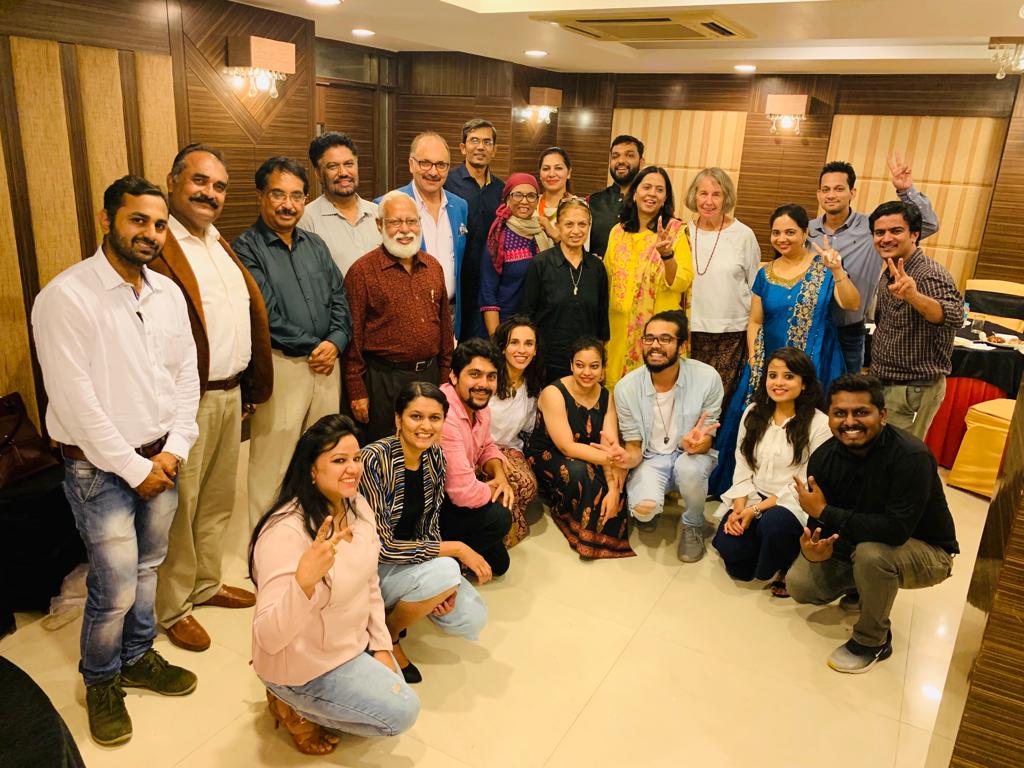
All images courtesy of IPS Academy except where mentioned.
> via inputs from IPS Academy.